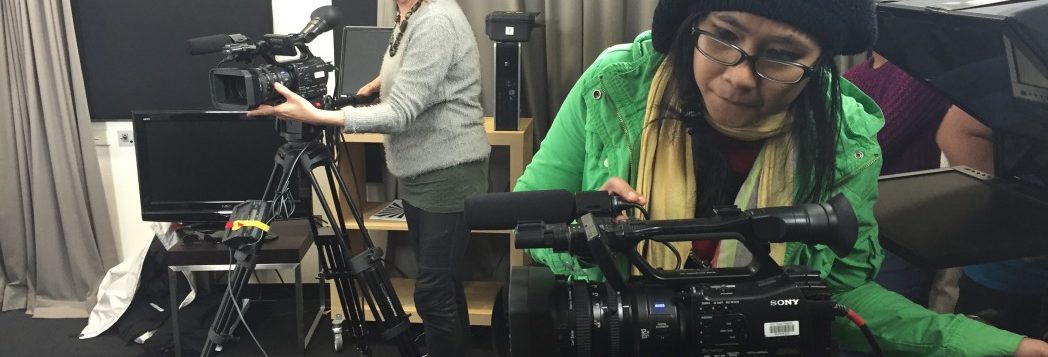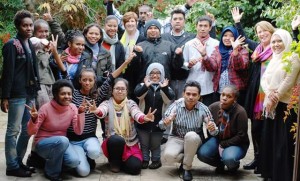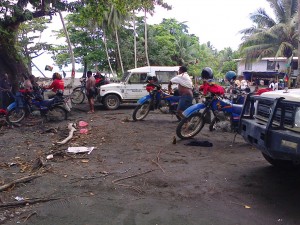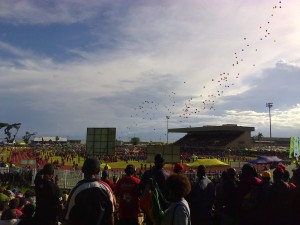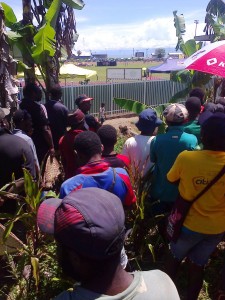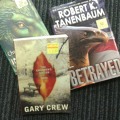Ngurah Rai Airport was crowd that night. The weather was quite cold. Many foreigners, let me guess most of them are tourists, occupied the airport located in southern Bali on that Saturday night, August 24, 2013. I was a part of a little Indonesian there, and not a tourist.
I was going to Melbourne, Australia, for participating in Media, Mining, and Development program organized by Asia Pacific Journalism Centre. My departure flight was from Adi Sucipto Airport, Yogyakarta, and transited in Ngurah Rai to get international flight to Melbourne.
My flight from Bali to Melbourne lasted six hours. I arrived in Tullamarine Melbourne Airport at 9 AM, Sunday morning—time in Australia three hours faster than in Indonesia. The weather is very cold for me as I am used to live in tropic country like Indonesia.
I am one of the six participants from Indonesia on the program that involves eleven participants from Indonesia, Papua New Guinea (PNG), Fiji, and Solomon. All of them are young journalists, mostly have interest in mining and business issues.
There are invested a lot of mining investments in those developing countries recently. As mining industries will impact many things–social, economics, politics, and ecology–it is important for journalists that have interest in mining or business to know well how to report issues around mining industries.
The program will run for a month–started on August 26 and will be closed on Sept 27 and takes place in Melbourne, Brisbane, and Sydney. On the first day program, Erik Eklund, a Professor History at Monash University, presented a brief story of mining in Australia and his idea about mining issue in Asia-Pacific. He highlighted a small scale mining as one of important mining issue in Asia-Pacific. In this session, eleven journalists share their knowledge on mining in each country.
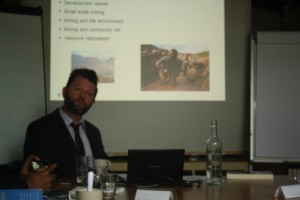
On the following days eleven journalists get quality personal exploration for improving professional work from Suzy Woodhouse a leadership and management trainer. In this session, they share their each personal character and experiences in workplace as journalist closely. Suzy gives them some insights how to encourage personal character in professional work. As most of them mentioned, mining industry is closed industry then journalists get difficult to get data whereas the main duty of journalist is collecting data. Thus, journalists based on mining issues have to have strong self confidence.
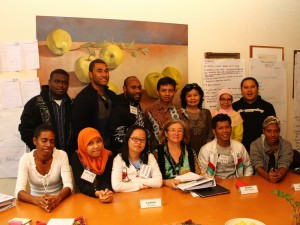
After encouraged by the session with Suzy in the first week, the program continued with the reporting mining and resources workshop with Nigel McCarthy, an economic journalist who has worked in Britain and Australia. In this session, difficulty in obtaining information from mining company shared by participants increasingly sharp. Nigel highlighted the importance of statistical information in mining stories and exemplified that journalist could obtain statistical information from annual report of company. This session was opened by explanation of global capitalism as the context of mining industries. Nigel mentioned mining business as “shonky business”.
Mining industries in four countries where participants of the program from have mostly similar stories. Mining could have positive effect in increasing economic development as it has adverse effects in decreasing environment quality, both horizontal and vertical conflict, and generally what we call Dutch Disease or resource curse.
Journalist and media are significant actors that have important role for society escaping from resource curse. How you report and write mining stories, guys?
